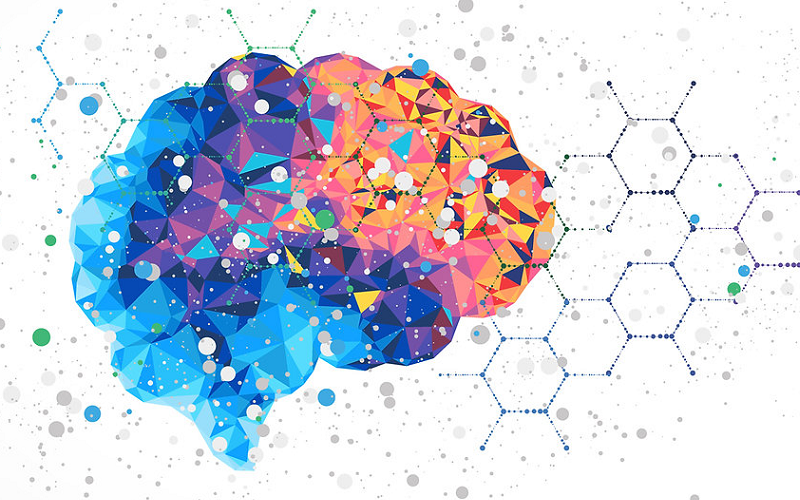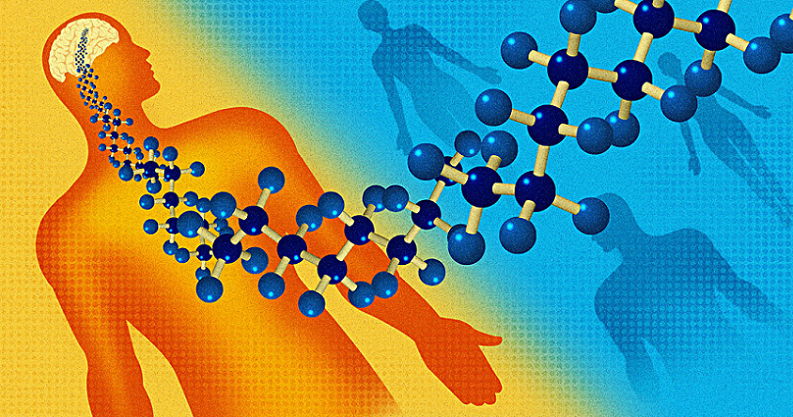
In an age where environmental and dietary exposures are more complex than ever, understanding the impact of neurotoxins on brain function and health is crucial. Neurotoxins, a diverse group of exogenous chemical substances, can adversely affect the nervous system and disrupt cognitive processes. These toxins can originate from various sources, including environmental pollutants, dietary substances, and biological agents. Here we examine the intricate ways these neurotoxins interact with our brains, from the molecular mechanisms of neurotoxicity to the observable symptoms and long-term health effects.
Contents
Types of Neurotoxins
Neurotoxins, harmful to the brain and nervous system, can be classified based on their origin and composition. Here we look into the major categories of neurotoxins, exploring their sources and the unique ways in which they affect brain health.
Environmental Neurotoxins
Environmental neurotoxins are chemicals found in our surroundings that can be harmful to the brain. These include toxins present in the air, water, soil, or in products we use daily.
Heavy Metals
Lead and mercury are common examples. Lead, often found in old paint and plumbing systems, can cause severe developmental delays and neurological issues, especially in children. Mercury, found in certain types of fish and in industrial emissions, can damage the nervous system and impair cognitive functions.
Industrial Chemicals
These are chemicals used in agriculture, manufacturing, and other industrial processes. Pesticides, like organophosphates, can disrupt neurotransmitter function, leading to cognitive deficits. Solvents such as toluene, used in paints and glues, can cause brain damage with prolonged exposure.
Biological Neurotoxins
Biological neurotoxins are naturally occurring substances produced by living organisms. These can be some of the most potent neurotoxins known.
Bacterial Toxins
Botulinum toxin, produced by the bacterium Clostridium botulinum, is a powerful neurotoxin. While it’s used medically in small doses, accidental or excessive exposure can lead to muscle paralysis and respiratory failure [1].
Animal Toxins
Toxins from animals such as snakes or spiders can also be neurotoxic. For example, snake venom often contains neurotoxins that can cause paralysis by disrupting nerve signal transmission.
Dietary Neurotoxins
Dietary neurotoxins are substances found in certain foods or drinks that, when consumed, can have adverse effects on the brain.
Naturally Occurring Toxins
These include mycotoxins found in mold-contaminated foods. For instance, aflatoxin, produced by certain molds on grains and nuts, is not only neurotoxic but also carcinogenic.
Artificial Additives
Some food additives like monosodium glutamate (MSG) and aspartame are controversial regarding their neurotoxic effects. While generally recognized as safe in small quantities, there are concerns about their potential impact on the brain, particularly in sensitive individuals or with excessive consumption [2].

Mechanisms of Neurotoxicity
Understanding how neurotoxins impact brain function requires a deep dive into the mechanisms of neurotoxicity. Neurotoxins can harm the brain and nervous system in various ways, from disrupting neuronal communication to inducing oxidative stress. Here, we explore the primary mechanisms through which these toxins exert their harmful effects.
Disruption of Neuronal Communication by Neurotoxins
One of the primary ways neurotoxins affect the brain is by disrupting the communication between neurons. Neurons communicate through complex networks using electrical and chemical signals. Neurotoxins can interfere with these signals in several ways: by blocking neurotransmitter release, altering receptor function, or affecting the reuptake of neurotransmitters. This disruption can lead to a range of cognitive, motor, and sensory impairments.
Neurotoxins Damage to Brain Structure
Neurotoxins can also cause direct physical damage to the structure of the brain. Some toxins lead to the degeneration of neuron structures, like the axons and dendrites, hindering the flow of information within the brain. Others can cause the death of neurons, leading to a loss of brain mass and function. This structural damage is often irreversible and can result in long-term neurological deficits [3].
Impairment of Blood-Brain Barrier by Neurotoxins
The blood-brain barrier (BBB) is a crucial defense mechanism that protects the brain from harmful substances in the bloodstream. Certain neurotoxins can weaken or disrupt this barrier, allowing toxins and other damaging substances to enter the brain more easily. This breach not only increases the brain’s vulnerability to neurotoxins but can also lead to inflammation and other secondary effects that further damage brain tissue.
Induction of Oxidative Stress and Inflammation from Neurotoxins
Oxidative stress and inflammation are common consequences of neurotoxin exposure. Many neurotoxins generate free radicals or reactive oxygen species, which can damage cellular components like DNA, proteins, and lipids. This oxidative stress, combined with the body’s inflammatory response to the toxin, can lead to widespread damage within the brain. Chronic exposure to neurotoxins, therefore, can lead to a state of persistent oxidative stress and inflammation, exacerbating neurodegenerative processes.

Symptoms and Effects of Neurotoxin Exposure
The impact of neurotoxins on the human body can vary widely, depending on the type and amount of toxin, duration of exposure, and individual susceptibility. This section examines the common symptoms and effects of neurotoxin exposure, highlighting how these substances can profoundly affect brain function and overall health.
Neurotoxins and Cognitive Decline
One of the most concerning effects of neurotoxin exposure is its potential to cause cognitive decline. This can manifest in various ways.
Memory Loss
Exposure to neurotoxins can lead to difficulties with short-term and long-term memory. Individuals may struggle to recall recent events or learn new information. This symptom is particularly worrying as it can be a precursor to more severe cognitive impairments [4].
Reduced Concentration and Focus
Neurotoxins can also affect an individual’s ability to concentrate or maintain focus on tasks. This can impact daily activities, work performance, and overall quality of life.
Neurotoxins and Neurological Disorders
Chronic exposure to certain neurotoxins is linked to the development of neurological disorders.
Alzheimer’s Disease
Some neurotoxins are implicated in the development of Alzheimer’s disease. They may contribute to the formation of amyloid plaques and neurofibrillary tangles, hallmarks of this condition, leading to progressive cognitive decline.
Parkinson’s Disease
Exposure to neurotoxins like pesticides and heavy metals has been associated with an increased risk of Parkinson’s disease. These toxins can cause the death of dopaminergic neurons in the brain, leading to the characteristic motor symptoms of the disease [5].
Behavioral and Mood Changes Caused by Neurotoxins
Neurotoxin exposure can also lead to changes in behavior and mood, often overlooked but equally important symptoms.
Anxiety and Depression
There is growing evidence that exposure to certain neurotoxins can exacerbate or trigger anxiety and depression. The exact mechanisms are still being studied, but these effects can significantly impact mental health and well-being.
Aggression and Irritability
Changes in temperament, such as increased aggression or irritability, can also be a sign of neurotoxin exposure. These changes may result from the toxin’s impact on brain regions that regulate emotion and behavior.
References
[1] Neurotoxicity
[2] Neurotoxins: Cause, Effect, and Prevention
[3] Neurotoxicology: what the neurologist needs to know
[4] Neurotoxins in the environment are damaging human brain health
[5] Neurotoxicity, Types, Clinical Manifestations, Diagnosis and Treatment
